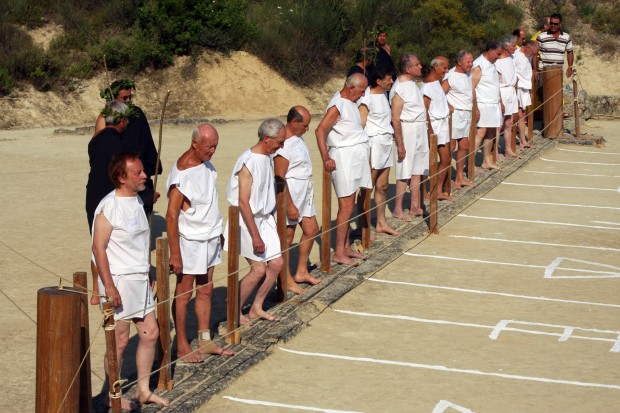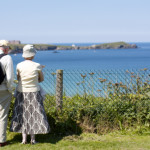Olympic fever is close to taking over London and the rest of the globe is slowly but surely turning its sporting focus towards the UK in anticipation of what is arguably the world’s best known, most loved and most important sports event.
The origin of the Olympic games is also well-known with Greek traditions and names still dominant.
However, I recently found out about a growing group of people who believe that the origin of the Olympic games has been overlooked and all but forgotten. They are trying to save and recapture the true and original spirit of the Games in an event known as the Nemean Games. Greece has long been one of my favourite holiday destinations and with Greece in the spotlight at the moment for very different reasons, I wanted to find out more.
The origin of the Nemean Games
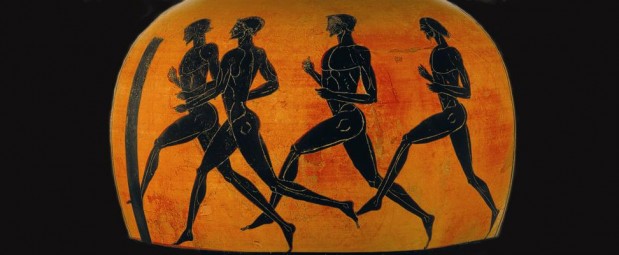
In ancient Greece at the time of the original Panhellic Games the coming together of people to compete against each other didn’t just happen at Olympia.
It also took place in three other locations in Ancient Greece, which alternated on a four-year cycle. One of these places was Nemea. Historians believe that these annual games were a time when normally conflicting tribes from different neighbouring regions would quite literally down swords and cordially compete against each other to honour Greek Gods; the point being participation not victory.
In the 1970s a US academic with a deep rooted fascination for Ancient Greek history and in particular the places where these ancient games were held began the very long process of excavating in and around where Nemea was believed to be. His goal was to find the location of the original stadium that hosted games every two years from 573 BC until 271 BC. Locals quickly became fascinated and intrigued by his work, fired up by their pride in their local history. 20 years later the outline of the stadium was found and salvaged with a lot of additional information coming to light about the stadium and games. To cut a long story short it sparked a real interest in the true meaning and nature of the cycle of games we believe to have been the forerunner of the Olympic Games.
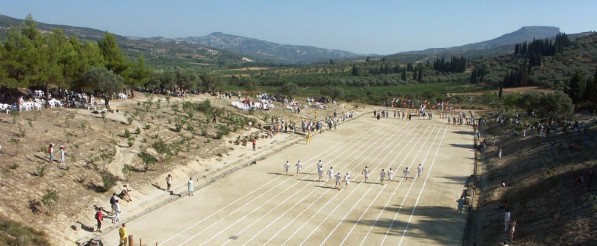
From this group of inquisitive locals was born the Society for the Revival of the Nemean Games, who focused more on the involvement and peaceful nature of the original games in contrast to the mammoth athletic event that is now the Olympic Games in which only elite athletes compete. It is the Society’s belief that the spirit of the original was one of peaceful participation by usually conflicting regions, not fierce sporting competition and in 1994 the first Nemean Games were held with a focus on this. This year will be fifth Nemean Games and as has always been the case anyone can compete in the traditional events, which includes the 100m sprint (which is actually 90m but wearing a Greek tunic and running barefoot is compulsory).
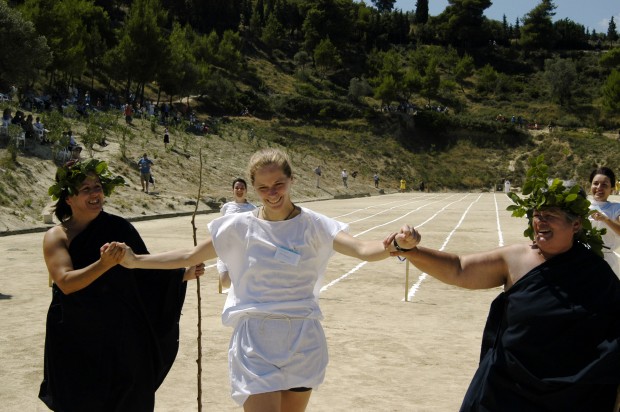
Nemean Games: Holiday Destination?
As Greece’s tourist industry could potentially feel the wrath of its current economic instability are the Nemean Games a pie in the sky or a local dream being realised? And why am I, a travel blogger, writing about them? Well, the Nemean Games are being pitched as a holiday experience, offering people from all over the world to participate or spectate at the Games, as part of their summer holiday. It is open to all ages, all backgrounds and is free to register to run in the Games which are held on the 23rd and 24th June this year. I have no doubt they’ll enjoy some beautiful weather, delicious Greek food and warm local hospitality, while they’re soaking up thousands of years of history.
Personally I have taken many wonderful holidays in Greece and I would be sad to think the people who rely on this industry suffer because of a political situation that is seemingly out of their control. But most significantly I can’t help but wonder if indeed we have lost sight of the real meaning of the original games, from which the Olympics derives. I think back to when I was 6 years old and running in my first egg and spoon race. Of course, I did appallingly dropping my (thankfully fake) egg countless times. My mother consoled me with the advice “it’s not the winning that matters, it’s the taking part” and I wish I’d known that before I lined up as I know I would have enjoyed it so much more. So what do you think, has Olympic fever blighted our understanding of the real spirit of the Games? And would you consider packing your toga and travelling to Greece to take part in the Nemean Games?
